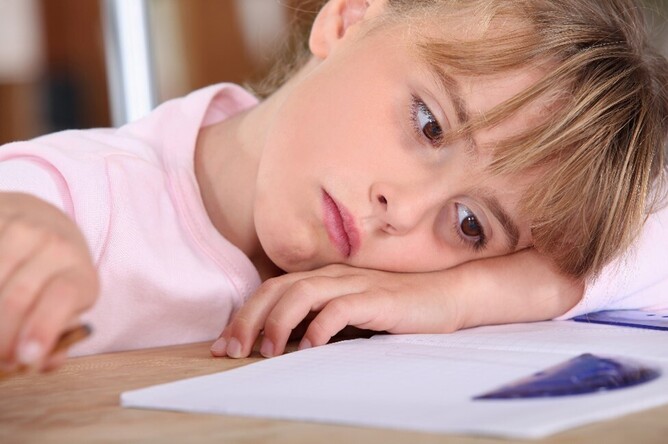Returning to school another year older or starting somewhere new can be an exciting and apprehensive time for any child, but since the pandemic hit, many children have been left traumatised by their schooling experience and so returning to any form of academic establishment will present new and increasingly difficult challenges for them. This blog aims to highlight some of these challenges and the ways in which they can be managed.
Returning to primary school
For many primary school aged children the pandemic has stirred up all sorts of difficult and incomprehensible emotions, thoughts and feelings especially in relation to school. Flitting between online learning and a strange new in-person regime has caused confusion and upset for pupils and so the idea of returning to this scenario may bring back old (and new) thoughts, feelings and behaviours.
School may now have an eerie feel to it or be perceived by some children as a scary and unsafe place to be. The liminality and temporary feel left over by inconsistent in-person teaching may make the schooling environment feel like a space that will soon be abandoned again in exchange for the comfort of home. These conditions may make focusing of schoolwork difficult and heighten anxiety especially around social situations, some children may also experience separation anxiety, making it difficult for them to leave the home.
Talking to a child about their feelings in relation to their school return and how the schooling environment makes them feel can seem like a tricky task but holds great importance. Talking can help primary school aged children open up communications about their own thoughts, feelings and emotions whilst feeling in-touch with the feelings of safety linked to home and family. Encouraging children to take a small piece of home with them to school in their backpack or pocket can also help ease social and separation anxieties as this transitional object will remind them of the safety and close proximity of home. Some children may feel more comfortable knowing they have extra safety equipment at hand e.g. gloves, masks, hand sanitiser or even a notebook to write down their feelings or worries.
A child's comprehension of school rules and boundaries may have also been affected by the pandemic, expressing their difficulty to grasp these concepts though defiance, disruption or ‘misbehaviour’ during school hours. This could be due to the lack of permanence or perceived importance of the schooling environment and structure after spending a long period of time away from it in exchange for the family home which holds different rules, expectations and boundaries. Some children may also feel a lack of control due to the disruption of the pandemic, and so resort to boundary pushing in order to initiate adult interventions that create feelings of safety and consistency.
Allowing children to express their feelings and let out their angers and frustrations creatively can help prevent the manifestation of these feelings through negative behaviours. Physically demanding and expressive activities such as sport, or activities that involve a controlled sense of mess and destruction (e.g. food fights, mud pie making, putty/dough play etc.) can be a great way to channel these difficult emotions. Trying to start a conversation with a child about why their behaviour has changed could also help to reassure them that they are thought and cared about. Keeping home life routines consistent can also help reduce the build up of stress and anxiety that would later be released during school hours.
There may be a fear of being ‘out of the loop’ due to missed opportunities to build friendships, memories and experiences with other children. Some may fear being lost or forgotten about by old friends especially if there has been a change in appearance or behaviour; maybe there's also some anxiety around no longer having common interests. For a primary school aged child, having a secure base of friendships can make the difference between a negative schooling experience and a positive one and so building up and securing these relationships is really important.
Using the ‘back to school’ period to make up for lost time could be an effective way in helping a child rebuild some of their friendships; by encouraging them to look at which after school clubs are running or organising social events for them yourself could create a great environment to foster social skills and friendships. Allowing more independence in friendship making could also help some children (but could hinder others, especially those who are more introverted) as well as creating space for new friends to be made and new experiences to be had away from the pandemic.
Returning to secondary school
Starting or returning to secondary school is difficult for older children due to their rapidly changing bodies and appearance, increased responsibilities and commitments. Learning to become a young adult has its own daunting challenges and now this generation must also tackle the complications of the pandemic alongside this
There may be a fear of harsh judgment at secondary school after the increased period of time spent at home has resulted in major changes to ones appearance or behaviour due to puberty, trauma or physical presentation (this can include a change in sexuality or gender). Children in this situation may feel unsure of how to approach their schooling environment and relationships in this new form or feel isolated and anxious. In contrast, some children may feel as if they have not changed enough in comparison to their peers especially if they are experiencing a later pubertal development.
Self-expression is a key behaviour in managing ones own mental health and one way this is achieved is through physical appearance and social presentation; jokes or negative comments targeting a person’s physicality should be avoided in order to allow older children explore their individuality and grow their self-esteem. Allowing secondary school aged children the freedom to explore their fast developing bodies, personalities and behaviours can feel difficult to navigate but is important for their emotional growth into teenage-hood. By reminding these children that they are supported and loved whilst trying to open up honest communication around school life and bullying can greatly improve their emotional well-being and confidence to experiment throughout secondary school.
Some children may start to feel the effects of having missed crucial milestones in their development during their time in lockdown, comparing their own achievements to those of friends and family. Returning to secondary school can highlight this insecurity and make a child feel inadequate and self-conscious about their perceived lack of academic, social or physical progression.
By reminding young people who feel this way that they are not alone (without giving comparisons) in this worry can be a great help, everyone processes trauma differently and to be able to get through a global pandemic in one piece is a huge achievement. Try to release some of the perceived pressure felt by these children through reassurance and reminders that not everyone has used their time through lockdown productivity and in fact that productivity is a concept unique to everyone.
Just like in primary school aged children, secondary school provides the opportunity to push boundaries and some children may ‘make up for lost time’ by overexerting their opportunity for experimentation by breaking school rules, acting violent or ‘rebellious’ and may try to abuse substances.
Like mentioned earlier, testing boundaries may be a child’s only way of seeking out security and identifying safe places by knowing what will happen as a consequence for their actions. Consistency at home is important as well as allowing space for self-expression through appearance, hobbies etc. Encourage older children to talk about what goes on in their social group outside of school hours and how that makes them feel. For children who struggle with anger and violence, it may be worth exploring this with them and figuring out ways to help them de-escalate e.g. counting to ten before reacting, going for a run to burn off pent up energy, breaking old plates to release frustration.
Returning to or starting sixth form/college
Just like in primary and secondary school, college presents new and exciting opportunities to young people. But sadly, the pandemic has done well to dampen academic and social progression for teenagers whilst increasing the difficulties they face whilst studying in higher education.
College is often thought of as a place to recreate ones self; to leave the past behind and strive forward with a new sense of maturity to match a different appearance and behaviour. Letting go of the person they once were can help many teenagers to progress in their pursuit for individuality and adult hood and in fact many teens will also take advantage in leaving behind the person they once were before the pandemic. Although this can be healthy it can also create a lot of internalised pressure and anxiety to be and act different; going as far as suppressing ones own genuine thoughts and feelings and denying any personality traits perceived as undesirable.
There are not many ways in which one can help a young adult experiencing these issues besides allowing them the space to figure out and explore the paths they deem necessary whilst reminding them of the loving and accepting home they have to fall back on if and when things go wrong. Providing a safe and secure base will help the most when a teen is experiencing identity issues, knowing that no matter who they turn out to be that they still have a family and a home that will love them. Another point to echo would be to once again avoid degrading the choices they make in outfit or appearance as this can greatly impact a young developing adult’s sense of worth and self.
Some young adults may also feel pressure (either imposed on themselves, or from others) to ‘fit in’ or achieve milestones that they don't feel ready for e.g. going out to parties, having intimate relationships, experimenting with cigarettes and alcohol, studying at a higher level than before. This pressure can build up and cause outbursts, burn out, and immense social anxiety, hindering young people from completing their studies to the best of their abilities and greatly effecting their mental health.
Creating a safe space at home and reminding teenagers that they don't have to conform to peer pressure can help them cope better with the pressure they are experiencing. Starting conversations about the milestones they are struggling to achieve will also encourage them to talk through and process the troubles they are causing. That being said, a young person’s privacy is precious and should be respected; understand that when they wish to escape to their room or out of the home they may actually be trying to escape from the mounting pressure they perceive themselves to be under.
Also, many young adults will not feel fully equipped to start pursuing their career aspirations or potential job opportunities due to the effects of the pandemic; adjusting instead to a life online, shut away from the outside world and causing in-person experiences to feel foreign and uncomfortable. Some teenagers may feel that they lack the social ability to chase down work experience or to commit fully to an on-campus academic experience.
As mentioned in our previous blog, providing a supporting and encouraging hand may help many teenagers when faced with practical activities such as writing, printing and handing out C.V.'s to local businesses. Talking about job prospects, future dreams and goals can also help young people to start thinking practically about their lives and what they want to do and achieve, from here planning the steps in order to fulfil these goals will come naturally.
In reflection, the main emphasis of this blog is to notice and acknowledge the new difficulties presented to young people when returning to school and making efforts to communicate openly with them and provide a loving and supporting home environment.


